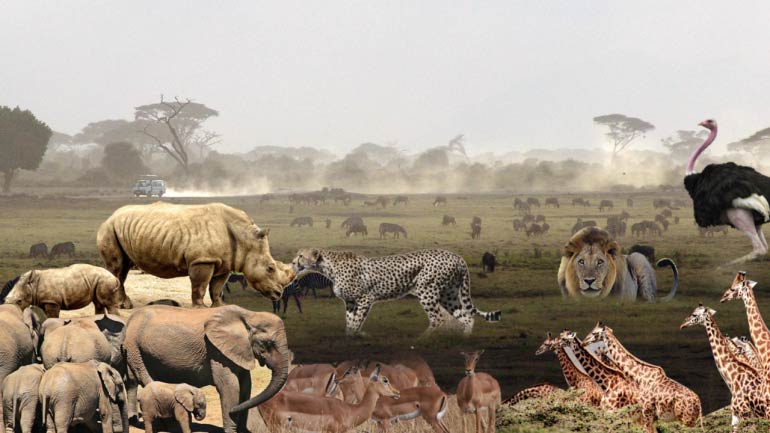ShmoopTube
Where Monty Python meets your 10th grade teacher.
Search Thousands of Shmoop Videos
African History 7.3 Corrupted Capitalism 5 Views
Share It!
Description:
Today, we're going to talk about capitalism, corporatism, and regulatory capture. And yes, we're super fun at parties.
Transcript
- 00:04
The invisible hand of the free market can get tied up sometimes. [Hands tied by rope]
- 00:07
The biggest issue is called…regulatory capture.
- 00:10
This is when a government agency that’s supposed to be free of corporate influence
- 00:15
gets taken over by a specific company.
- 00:18
Then the corporation twists the government to its ways and pumps up its own profits,
Full Transcript
- 00:23
often at the expense of the people. ['Corporation' arm pumps up a 'profit' balloon]
- 00:25
From the 1970s to the present day, regulatory capture has been hitting new and frightening levels.
- 00:31
In the 80s and 90s in Nigeria, it was totally out of control. [Graph of regulatory capture quickly going up]
- 00:36
Regulatory agencies, judges, lawmakers, political parties…all were in on the take. [Judge taking money]
- 00:41
Corporate capture was like Godzilla on the loose, except that it built skyscrapers instead
- 00:45
of smashing them.
- 00:46
Though it did still squish innocent civilians in the process. [Godzilla stands on a person]
- 00:49
In Nigeria, each party had a bank, corporation, or lobby group that ruled its decisions.
- 00:55
Virtually all decisions about permits, environmental regulations, foreign scholarships, and business
- 01:01
taxes were made to reward the companies that were buddy-buddy with whatever party had its [Person driving a car]
- 01:06
hands on the steering wheel.
- 01:07
Although Nigeria has cleaned up some of the corruption since about 2000, government policy [Nigeria sweeping away corruption]
- 01:12
is still mostly controlled by corporations and interest groups.
- 01:16
When a capitalist democracy’s free market gets hijacked by corporations it’s called…somewhat ['Corporate' man hijacking a plane]
- 01:22
predictably…corporatism.
- 01:23
It’s like the day they finally build a combination Starbucks/McDonald's on the White House lawn.
- 01:29
Nigeria is Africa’s most extreme example of corporatism gone wild, but we can also [Person using a hula hoop and Nigeria chucking cash on the floor]
- 01:34
look to Uganda, Kenya, and, to a lesser extent, post-apartheid South Africa.
- 01:39
However, just like socialism, some countries that went capitalist early still managed to [Car does a u-turn in the road]
- 01:44
turn it around.
- 01:46
Nigeria's extreme corruption prevented the government from building adequate education,
- 01:50
health services, and infrastructure. [Teacher and school children in a classroom]
- 01:53
On the other hand, capitalism allowed Nigeria to export boatloads of oil…literally…like [Oil tankers moving around]
- 01:57
a lot of boatloads.
- 01:59
Since the 1960s, oil companies, especially Shell, have drilled Nigeria like crazy, and
- 02:05
there's still a lot of oil left. [Nodding donkey oil pump with the Shell logo]
- 02:07
Nigeria now surfs the oil trends.
- 02:09
When the world oil market is good, Nigeria is one of the better-off countries in the world. [Nigeria on a surf board]
- 02:13
The oil money has led to the rise of Africa's largest city: the well-developed coastal capital
- 02:20
of Lagos.
- 02:21
However, when Nigeria's oil runs dry there’s no telling what’ll happen. [Empty well]
- 02:25
We’re hoping everybody deals with it by hugging it out, but it probably won’t be
- 02:29
like that.
- 02:30
Hopefully, Nigeria will use the money to create other industries to keep the country on track. [Nigeria, Kenya and Uganda on an athletics track]
- 02:34
Capitalism worked out better in Kenya.
- 02:36
Even though Kenya is more corporatist than capitalist, regulatory capture has actually
- 02:41
produced a lot of jobs.
- 02:43
Telecommunications companies pretty much own the Kenyan regulatory agencies, and they’ve [Man in a suit on a mobile phone]
- 02:47
written laws that give telecom companies a lot of advantages.
- 02:51
The plus side of this is that Kenya has become a major home base for telecoms and mobile
- 02:55
phone companies.
- 02:57
Also, corporate HQs need loans.
- 02:59
So banks have popped up like mushrooms to give them what they need. [Mario hits a block and a bank pops out]
- 03:03
All this hustle and bustle keeps many Kenyans living in style. [Kenya watching a flat screen TV]
- 03:06
Making the jump from colonialism to capitalism can work.
- 03:09
Like bungee jumping off of Victoria Falls, it can be amazing…
- 03:12
…but it can also end in a great big splat. [Man bungee jumps and the rope snaps]
Up Next
Related Videos
Home to the biggest river, the biggest desert, and some of the biggest land animals in the world, Africa is so much more than what most media would...
Didn't get enough of the French Revolution the first time around? We've gotcha covered. Check out our second French Revolution video, preferably wi...
Famine is one of the biggest problems in Africa. Find out why it's such a complex problem, and what's being done to combat it.




